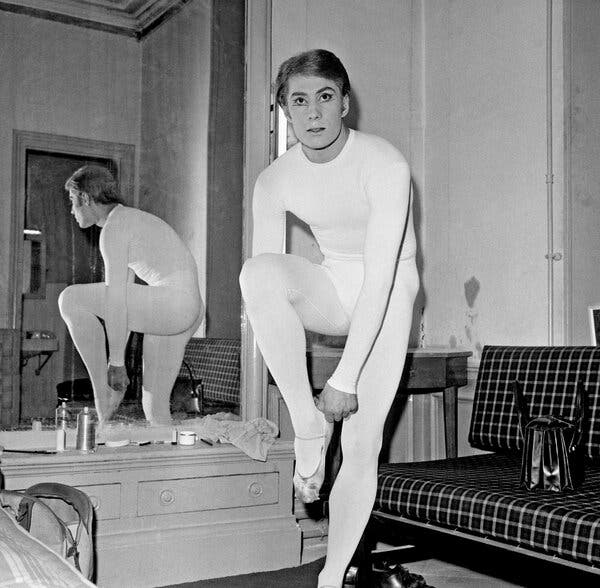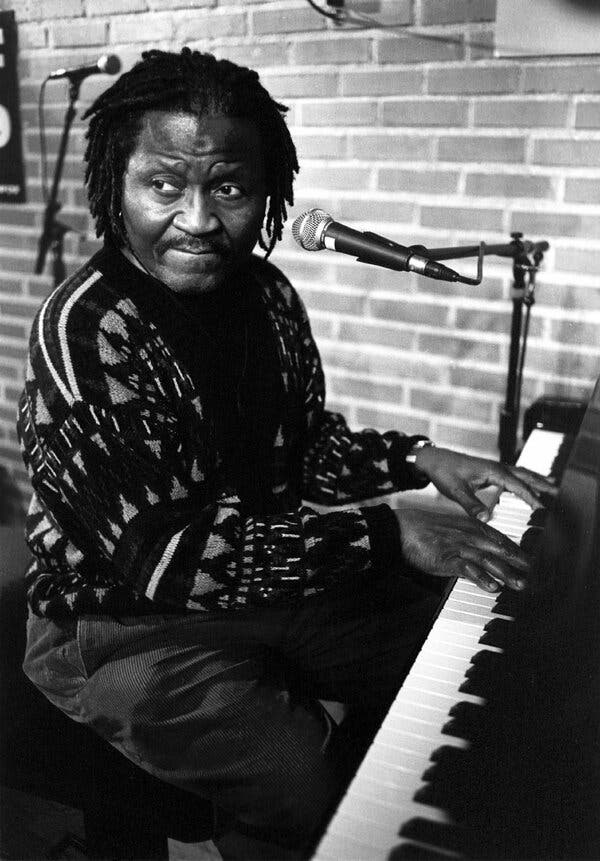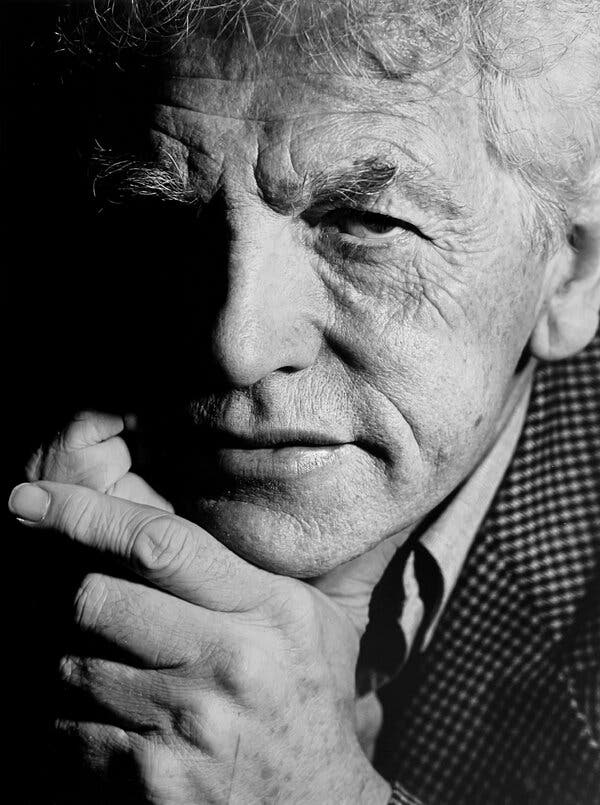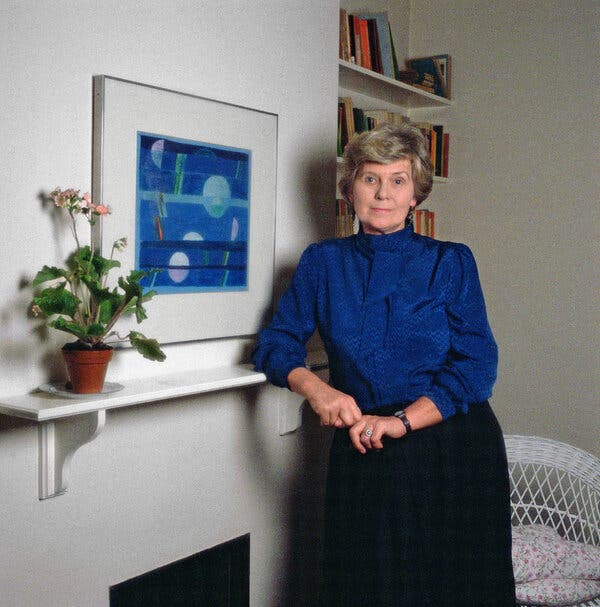David Thomas, the singer and songwriter who led Pere Ubu and other bands that stretched the parameters of punk and art-rock, died on Wednesday in Brighton and Hove, England. He was 71.
Mr. Thomas had suffered from kidney disease, but the announcement of his death, on Pere Ubu’s Facebook and Instagram sites, did not specify a cause, citing only “a long illness.” He lived in Brighton and Hove, but the announcement did not say if he died at home.
Through five decades of recordings and performances, Mr. Thomas maintained an audacious, unpredictable, ornery and ambitious spirit. He perpetually defied and upended structures and expectations, and he reveled in dissonance and unsprung sounds.
In the mid-1970s, at the dawn of punk rock, Pere Ubu described itself as “avant-garage.” And as punk developed its own constraints and conventions, Mr. Thomas purposefully warped or ignored them. When late-’70s punk bands sported T-shirts, leather and ripped jeans, he performed in a suit and tie. And while much of his music stayed grounded in rock, he also delved into chamber music, cabaret, electronics and improvisation.
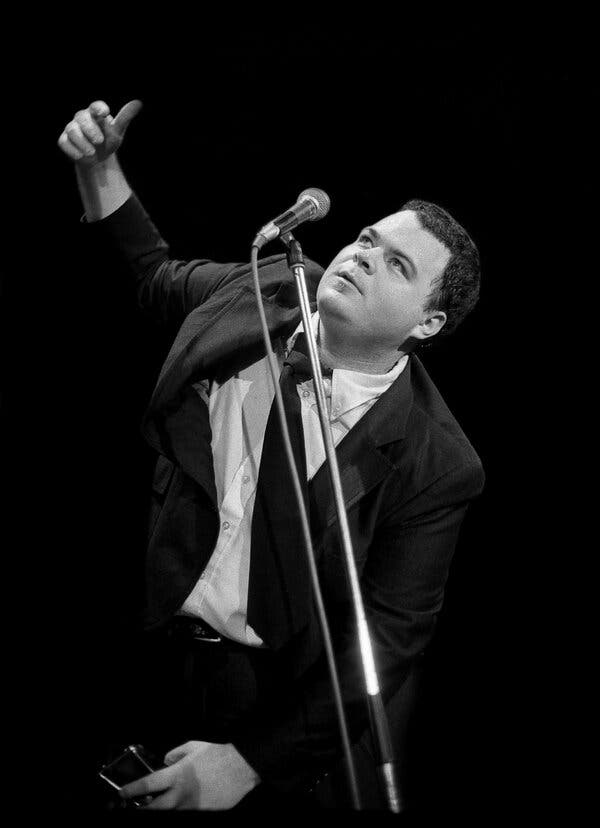
His voice was always distinctive: a liquid, androgynous tenor that he pushed to its limits and beyond — crooning, chanting, whooping, muttering, barking, burbling, yelling. His lyrics could be apocalyptic, free-associative, mocking, euphoric, cryptic or startlingly direct. Onstage, gesticulating vehemently, he veered between endearing and irascible.
Mr. Thomas was big-boned and overweight, and he wielded his bulk proudly onstage. In his first band, Rocket From the Tombs, and later on his official website, he billed himself as Crocus Behemoth.
How The Times decides who gets an obituary. There is no formula, scoring system or checklist in determining the news value of a life. We investigate, research and ask around before settling on our subjects. If you know of someone who might be a candidate for a Times obituary, please suggest it here.
Learn more about our process.
He recorded prolifically, releasing 32 studio albums and dozens of live recordings by Pere Ubu and Rocket From the Tombs as well as solo projects. In a 2021 interview with the magazine Psychedelic Baby, he said: “The ‘sound’ never changes. You change. The world changes. We don’t change. Each album needs to be a step forward into a deeper and more complex rendering of the human experience. Otherwise, find other things to do with your time.”
David Lynn Thomas was born on June 14, 1953, in Miami. His father, John David Lynn Thomas, was a professor of American literature; his mother, Mary Drake Carter, was a painter. David grew up in Cleveland Heights, Ohio, and briefly attended college before dropping out.
Editors’ Picks
10 Japanese Innovations That Shape Our Daily Lives7 Easy Ways to Make Your Basil (and Other Herbs) Last So Much LongerOverlooked Letter Rewrites History of Shakespeare’s Bad Marriage
Under the name Crocus Behemoth, he wrote about music for The Scene, a Cleveland alternative weekly newspaper, before deciding to make his own, although he described himself as tone-deaf.
“He never let the lack of any musical training get in his way,” Tony Maimone, Pere Ubu’s longtime bassist, said in an interview.
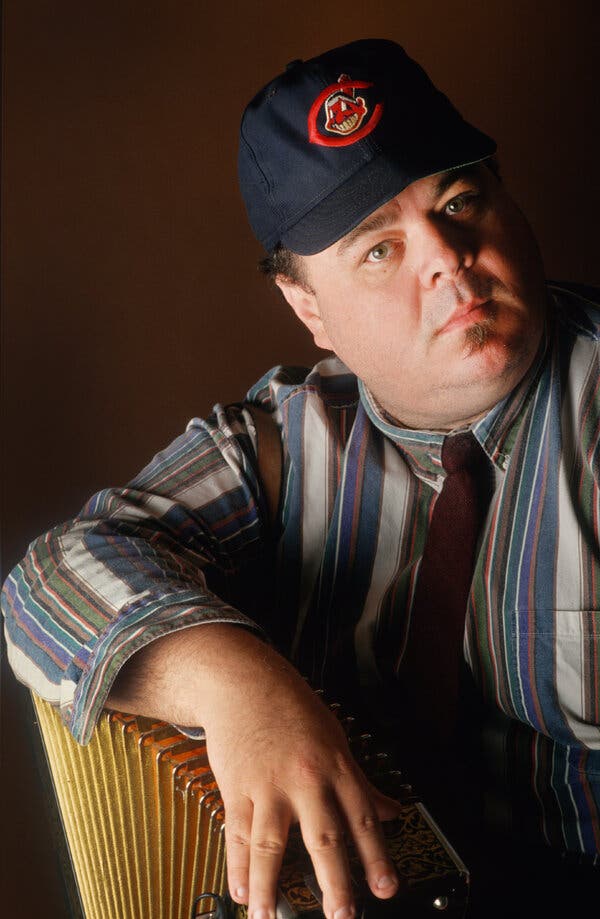
Making music in Cleveland in the 1970s — far from the music-business hubs, amid industrial ruins — fostered free thinking, Mr. Thomas told Cleveland magazine in 2017. “It was unparalleled for the strangeness, the revolutionary-ness and radicalness of it,” he said. “It will probably never happen again. We don’t live in that world anymore. It was possible because of the isolation and desperation of that time.
“Everything from Cleveland was doomed,” he added. “So if nobody likes what you do, and nobody is ever going to like what you do, and you’ll never be seen by anyone, you do what you want to do.”
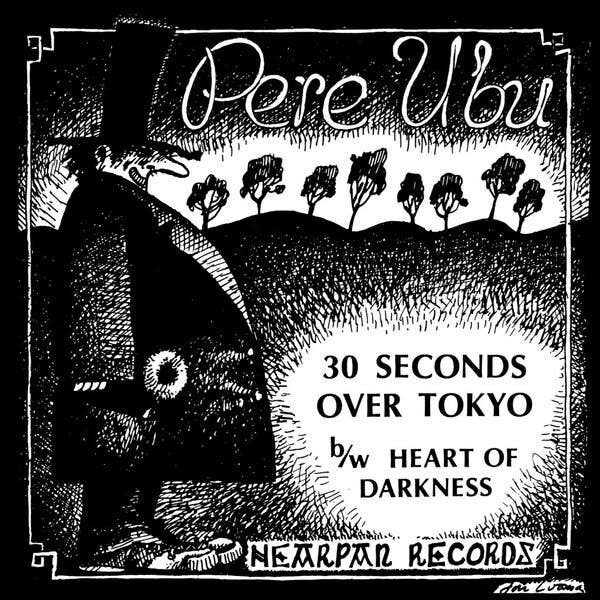
Rocket From the Tombs, his first band, lasted only a year, from 1974 into 1975. Its raw recordings, released long after it broke up, reveal a band that churned psychedelia and garage rock into bristling, unforgiving songs like “30 Seconds Over Tokyo,” about a World War II bombing run.
Soon after Rocket From the Tombs dissolved, Mr. Thomas and another band member, the guitarist Peter Laughner, assembled Pere Ubu, naming the band after the main character in “Ubu Roi,” an avant-garde play by the French symbolist writer Alfred Jarry. A studio recording of “30 Seconds Over Tokyo” was the group’s debut single. As with much of the rest of Mr. Thomas’s career, it would draw acclaim from the music press, recognition from a committed audience and minimally sustainable commercial success.
“I don’t think he ever made much money,” Allen Ravenstine, who played synthesizer in Pere Ubu’s early lineup and recently recorded with Mr. Thomas again, said in an interview. “He did not live a comfortable life. He was like a laborer digging a trench. He went to work every day and was worn out, and the reward was not great.”
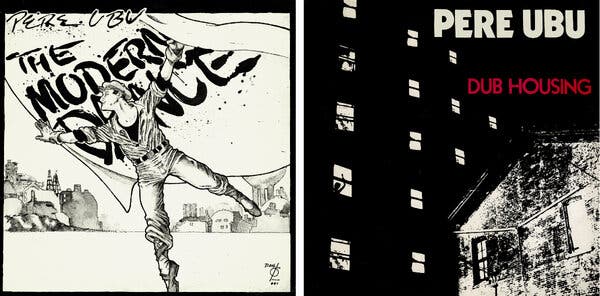
With the rise of punk rock, Pere Ubu got recording contracts with two labels and released two albums in 1978, “The Modern Dance” and “Dub Housing.” They melded terse riffs, noisy found sounds, discordant solos and Mr. Thomas’s mercurial vocals in gleefully jarring ways. The albums would have a lasting influence on countless post-punk bands, and they earned international attention and tour dates in Britain and continental Europe. Pere Ubu worked constantly over the next few years, touring and releasing three more albums before disbanding in 1982.
Mr. Thomas married Lynne Ferguson in 1980; they divorced in 2007.
Mr. Thomas soon turned to solo projects, assembling groups that at various times included the English trad-rock guitarist Richard Thompson and members of the English progressive-rock band Henry Cow. He also included former bandmates from Pere Ubu, and in the late 1980s, when most of the band had regathered, they reclaimed the Pere Ubu name. Their 1989 album, “Cloudland,” marked the band’s closest approach to pop.
Mr. Thomas relocated to England in 1994, though he also shared ownership of a family farm in Pennsylvania.
Pere Ubu’s lineup varied considerably over the next decades, but Mr. Thomas continued to lead the band through tours and albums into 2023, when it released “Trouble on Beat Street.” For that album, he wrote, “These new songs were played only once by the band and recorded at the same time.”
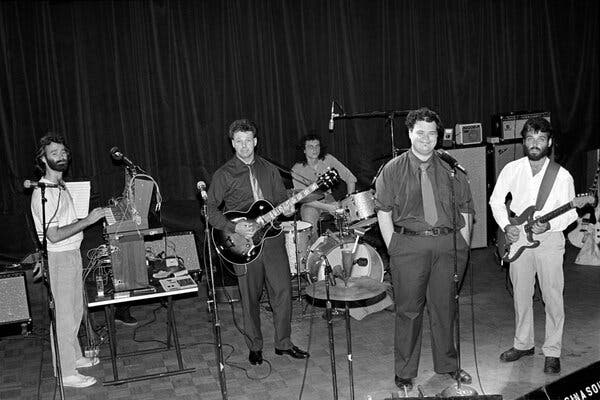
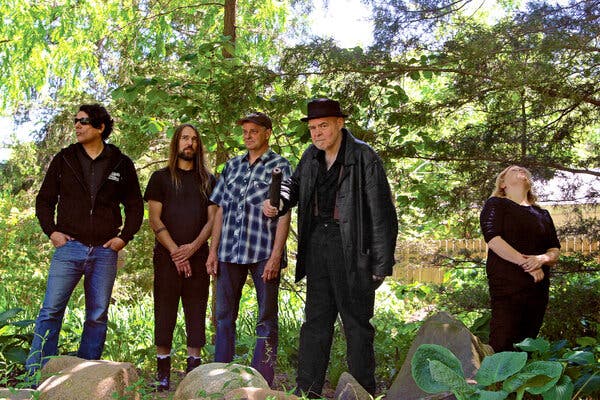
But Pere Ubu was not his only project. In 2003, he reunited to perform with surviving members of Rocket From the Tombs; they stayed together to release their much-belated debut album in 2003 and another in 2010.
Mr. Thomas continued to release solo albums and recordings of live performances from his archives. He also wrote four books and two improvisation-tinged operas, “Mirror Man” and “Bring Me the Head of Ubu Roi,” an adaptation of the Alfred Jarry play. He gave lectures and solo performances on tour. Shortly before his death, he was working on a final Pere Ubu album and an autobiography, which will be completed and released, according to his wife and manager, Kiersty Boon.
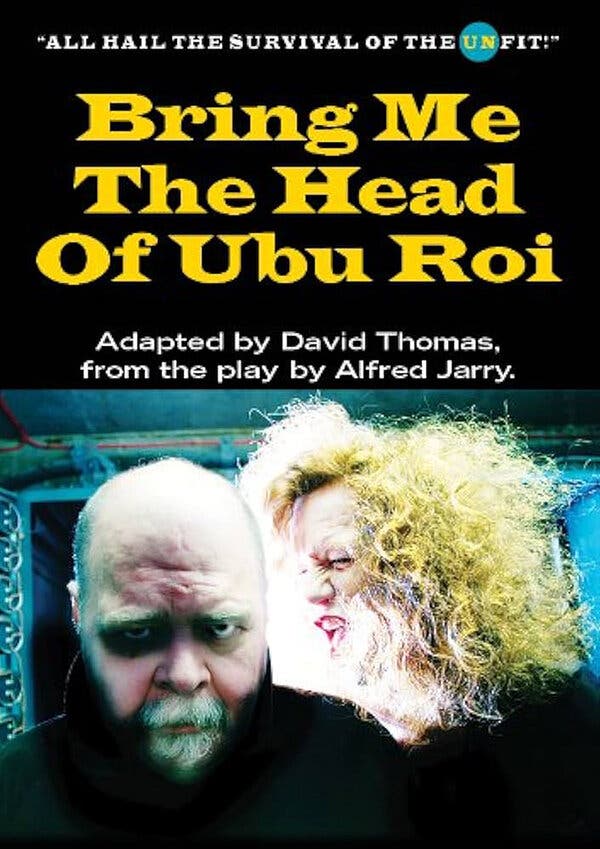
“The man just never stopped,” Mr. Maimone said.
In addition to his wife, Mr. Thomas is survived by his siblings, Ann and Alan Thomas, and three stepchildren, Ione, Koren and Nina Gamble. .
“He will ultimately be returned to his home, the farm in Pennsylvania,” Pere Ubu said in announcing his death, “where he insisted he was to be ‘thrown in the barn.’”
Jon Pareles has been The Times’s chief pop music critic since 1988. He studied music, played in rock, jazz and classical groups and was a college-radio disc jockey. He was previously an editor at Rolling Stone and the Village Voice.
